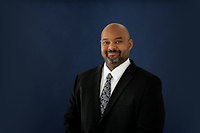2 Ohio court cases raise questions about lawsuits filed by injured workers
CLEVELAND, Ohio -- Two top courts in Ohio have delivered victories to injured workers that businesses and insurance companies are expected to fiercely challenge.
The court rulings this week looked at the 2005 Ohio law that said employees injured on the job are entitled to workers' compensation payments but no lawsuit damages except in narrow circumstances when there is a "deliberate intent" to injure.
The hurdle to prove intent seemed so high -- almost akin to having to establish cruelty or malice -- that lawyers for injured workers started advising their clients to drop the idea of suing employers because cases looked unwinnable.
But on Wednesday, the 8th Ohio District Court of Appeals upheld a jury award of almost $600,000 to a lineman who was shocked while installing wires in New London, Ohio.
Also on Wednesday, the Ohio Supreme Court refused to review a separate ruling from the 8th Ohio District Court in favor of a worker who lost his leg after he was crushed by a forklift in the aisle of a warehouse.
Both cases are being closely watched by plaintiffs' lawyers, employers and insurance companies.
"Everybody has a vested interest," said Myra Barsoum Stockett, a partner at the Reminger law firm in Cleveland who represents insurers.
Corporations and insurers in Ohio have tried since the 1980s to limit workplace intentional-tort claims.
Three times, courts struck down as unconstitutional laws that tried to put a larger burden of evidence and proof on workers. A fourth attempt, in 2005, yielded a state law that the Ohio Supreme Court found constitutional in two 2010 decisions.
Even so, Larry Hewitt of Maple Heights was awarded $597,785 by a jury in Cuyahoga County last year after the apprentice lineman was injured while working in a lift bucket near live high-voltage lines.
The jury said employer L.E. Myers Co., the largest U.S. installer of transmission lines, was at fault for specifically telling Hewitt to wear leather gloves instead of the rubberized gloves and sleeves that would have protected him from shock.
"One of their own employees testified that working near an energized primary line without rubber gloves would be like committing suicide," said Frank Gallucci, one of Hewitt's lawyers.
The case fell into one of the narrow instances in which a "presumption of intent" can permit damage awards: When an employer deliberately removes a safety guard.
Stockett said the Hewitt verdict "expands the (safety guard) exception to apply to far more circumstances than the legislature intended."
Attorney Robert Linton Jr., past president of the Cleveland Academy of Trial Attorneys, countered that defining safety guards as only protection equipment on punch presses and other factory machines was a "hypertechnical" interpretation that would give free rein to the "worst of the worst employers who deliberately create unsafe working conditions."
In its ruling, the three-judge appellate panel said that rubber gloves, in Hewitt's profession as a lineman, are "equipment safety guards."
Benjamine Sasse, an attorney at Tucker Ellis & West in Cleveland who argued the case, said L.E. Myers plans to appeal to the Ohio Supreme Court. "By expansively interpreting the statute, the appellate decision will continue to allow employees to sue employers in court while receiving workers' compensation," he said.
This week's other case involved Bruce Houdek, a worker at a ThyssenKrupp Materials warehouse in Cleveland.
The trial court threw out Houdek's claim on summary judgment, saying he didn't demonstrate the required intent to injure.
The 8th District reversed the lower court's decision. The three-judge panel said that supervisory orders to both Houdek and the operator of the forklift that struck him, as well as other evidence, showed that ThyssenKrupp "objectively believed the injury to Houdek was substantially likely to occur."
The Ohio Supreme Court refused to take up the company's appeal.
"We're going to file a motion for reconsideration," said Gregory Guice, the Reminger attorney who represented ThyssenKrupp. If the high court refuses the case again, it will return to trial.

